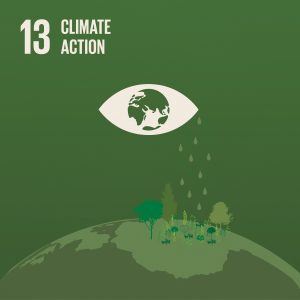“…a new type of thinking is essential if mankind is to survive and move toward higher levels.” Albert Einstein
First off, there is no consensus on an answer to the question posed in the title of this column. I sure don’t pretend to have a complete answer, but I do have some thoughts to share.
I recently observed a Global Council for Science and the Environment (GCSE) roundtable conversation on this question. The conversation explored establishing key competencies that college students should acquire, competencies that would empower them to contribute to societal change. One outcome being considered is using these competencies as a framework to create an accreditation system for sustainability programs at colleges and universities.
There was a lot of food for thought in this fascinating and important roundtable. There were conversations around accreditation, key competencies, and professional development. Anyone who cares to watch the 36-minute first half of this conversation is welcome to do so.
The key competencies part of the conversation focused on a highly cited 2020 academic journal article in Sustainability Science entitled “Key competencies in sustainability in higher education – toward an agreed-upon reference framework.”
The authors offer a framework of key competencies, visualized in Figure 1. They include the following:
- Systems-thinking Competency
- Values-thinking Competency
- Strategic-thinking Competency
- Futures-thinking Competency
- Interpersonal Competency
The article explains in detail what these competencies mean and what they include. There is a lot to them. Overall, I like them.
However, looking at Figure 1 you will see that these five competencies exist within an umbrella framework called “Integrated Problem-Solving Competency.”
That, I really don’t like. It gives me heartburn. To be fair, I just learned of this conversation and have not talked this through with those who have been engaged for some time. But still.
What’s my issue with it? It is a problem-solving mindset.
In my opinion, a problem-solving mindset will never achieve the transformational thinking and skills needed to create a safe, just, and flourishing world. To us in the Auburn University Office of Sustainability, sustainability is about envisioning and then bringing into being the world we want. It is a creating mindset. In the process, we will solve lots of problems, but the point is not problem solving.
My favorite quote on the distinction between problem-solving and creating comes from Peter Senge: “Problem solving is about making what you don’t want go away. Creating involves bringing something you care about into reality. Creating draws its energy from dreams or visions of what people truly want to see exist, in concert with accurate and insightful understanding of what is.”
The distinction between problem solving and creating is make-or-break significant. We’re with Donella Meadows: “The future can’t be predicted, but it can be envisioned and brought lovingly into being.” To us, that is the whole point of the sustainability movement.
This doesn’t mean ignoring problems. Senge: “When problem solving is primary, we figure out what’s wrong and avoiding outcomes we fear. When the creative orientation is primary, life becomes a journey of bringing into reality what you truly care about and addressing the many practical problems that arise along the way.”
Back to Meadows: “A change in purpose (from problem solving to creating – ed.) changes a system profoundly, even if every element and interconnection remains the same.”
So, learning how to frame conversations properly around purpose is perhaps the most important competency. That means being a social architect, having the skill to create the mental, emotional, spiritual, and physical space where creativity, shared learning, and innovation can occur. Graduates need to know how to keep the “why” of purpose always at the forefront of their own and others’ thought and help their teammates think about the “how” always in the context of the “why.”
Another required competency is understanding the nature of sustainability work. Sustainability work is generative. Emerging out of longstanding and universal human values, sustainability initiatives require openness to new learning and embracing new ways of thinking, seeing, and acting. It requires taking a step at a time, seeing what emerges, and going from there, always with a clear purpose and vision in mind. It requires the capacity to live with uncertainty, ambiguity, and chaos as the way emerges.
A related competency is courage, the courage to be vulnerable. Courage to show up and act in the face of uncertainty. Brené Brown is brilliant on this subject: “The courage to be vulnerable is not about winning or losing, it’s about the courage to show up when you can’t predict or control the outcome.”
One more thought from Peter Senge: “…the vast changes required for creating a regenerative society will not be achieved just by reacting to crises after they arise. They will require inspiration, aspiration, imagination, patience, perseverance, and no small amount of humility. They will require networks of committed people and organizations who not only learn how to see the systems shaping how things work now, but also create alternatives.”
A creating mindset, a clear sense of purpose and vision, the capacity for new learning, and the courage to act in the face of uncertainty are core competencies, some of the inner work of leadership for any would-be sustainabilista.
Learn about the SDGs & AU and our contributions related to this post.





